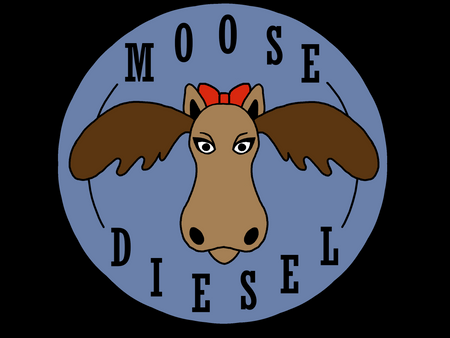
Horsepower ratings for our products
How Much Horsepower Will My Truck Make with a Moose Pump?
That’s a question we hear a lot—and it’s surprisingly complex to answer.
Let’s start here: horsepower ratings are notoriously subjective. They’re often used as marketing ammunition because big numbers tend to sell. But quoting horsepower figures based on that “feel-good” factor offers little more than a reference point—a vague suggestion of what's possible rather than what’s guaranteed.
What is horsepower, really? Merriam-Webster defines it as a unit of power equal to 746 watts in the U.S., or about 550 foot-pounds of work per second. But for most folks, that’s a head-scratcher. If you’d like to dive deeper, Wikipedia has a more thorough explanation: Horsepower – Wikipedia.
Here’s why all of this matters: Horsepower is a calculated number—not a measured one. Measurement methods can vary wildly, especially when trying to assess torque, the only metric with real accuracy. Add the confusion of measuring at the crankshaft vs. the wheels, and throw in environmental factors like altitude, temperature, and humidity... suddenly that tidy horsepower number loses a lot of its usefulness.
In the performance world, most horsepower numbers floating around online come from chassis dynamometers—dynos used by enthusiasts. But here’s the catch: dyno results can’t be reliably reproduced. Change the dyno, the operator, the weather, or even the calibration, and you’ll get a different result every time.
Why We Don’t Advertise Horsepower Figures
We don’t perform dynamometer testing on our Moose Pumps or injectors—because we don’t chase arbitrary horsepower claims. Instead, we rely on measurable fuel flow, which gives us a more honest and consistent data point. From this, we calculate estimated horsepower based on established constants:
-
For Ford applications, we use a multiplier of 2.83
-
For GM applications, we use 2.85
These constants reflect the average power yield per 1cc of fuel over 1000 strokes, derived from Stanadyne technical data. Here's how that math breaks down for Ford-based Moose Pump builds:
|
Moose Pump Model |
Fuel Flow (cc) |
Estimated HP |
|
Mini Moose |
60cc |
170HP |
|
Baby Moose |
70cc |
191HP |
|
Moose Junior |
90cc |
255HP |
|
Bull Moose |
100cc |
283HP |
|
Omega Moose* |
120cc |
340HP |
* Note: Omega Moose is discontinued. Specs shown for historical reference only.
Important Caveats
These numbers assume ideal conditions:
-
Strong compression
-
Adequate oxygen to burn the fuel
-
Sufficient cooling
But real-world engines are anything but ideal. At peak fuel flow (typically 1400–1800 RPM), getting enough oxygen into the cylinders to burn that fuel becomes challenging. Boost pressure doesn’t always solve the problem:
-
Hot air from high boost is less dense and contains fewer oxygen molecules
-
Cold, dense air at lower PSI can deliver better combustion, even with “less” pressure
So while 14 PSI sounds better than 7, it’s not always a win—especially if the 14 PSI is hot and the 7 is cold.
Also, as RPM increases, fuel delivery from any pump will naturally taper off. It’s physically impossible to maintain the same fuel output across the entire RPM range.
